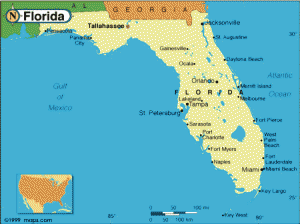Report: Bermuda Reinsurers Not To Blame
 Without Bermudian reinsurers it’s unlikely hurricane-battered Floridians would have access to any private homeowners’ insurance at all, says the head of a consumer watchdog group.
Without Bermudian reinsurers it’s unlikely hurricane-battered Floridians would have access to any private homeowners’ insurance at all, says the head of a consumer watchdog group.
Christian Camara, director of the Florida Insurance Project at the Heartland Institute think-tank in Tallahassee, was responding to a scathing Sarasota newspaper piece which accused Bermuda reinsurers of putting the squeeze on Florida homeowners.
The article in the “Sarasota Herald-Ledger” — “Bermuda Controls Floridians’ Hurricane Risk” — accused Bermuda-based reinsurers of taking advantage of the state’s catastrophic 2005-2006 hurricane seasons to jack up premiums, accusing them of being “the almost-pirates of the almost-Caribbean.”
“In fact, Florida insurance premiums have fallen 15 percent since 2007,” said Mr. Camara. “Likewise, Floridians have collected billions for reinsurers. During the more recent bad storm season, Floridians and residents of other Gulf Coast states collected more than $20 billion in payments from Bermuda reinsurers alone. This isn’t a small amount. Without offshore reinsurance, indeed, it’s unlikely that private homeowners’ insurance would exist at all in the State of Florida.
“The problems of Florida’s homeowners’ insurance market aren’t the result of rapacious offshore reinsurance companies but, rather, a system that has persistently overregulated the rates that insurers charge and mandated their purchase of underfunded taxpayer reinsurance from a state agency, while abdicating the state’s responsibility to ensure that those same insurers remain solvent and able to pay claims.
“Florida’s insurance system is badly broken, but offshore reinsurers aren’t the problem.”
The Sarasota newspaper article quoted unnamed sources in the state’s insurance industry who accused the $470 billion Bermuda-based reinsurance sector of operating an unscrupulous off-shore cartel out of the island
“In early 2006, Florida was on the verge of a financial disaster,” said the report. “After two deadly hurricane seasons, major insurance carriers were leaving, smaller companies struggled to raise capital and Florida families scrambled to find coverage and pay escalating premiums.
“As they strove to recover from the eight hurricanes of 2004 and 2005, Floridians took another hit — from Bermuda reinsurance companies that seized on the crisis to double or triple their rates. These reinsurance companies, which insure the insurance companies, are the lifeblood for scores of under-capitalised, highly leveraged start-up insurers. Most carriers could not remain in business without costly reinsurance policies geared to cover their losses. But in 2006, many reinsurers reduced the storm coverage they were willing to give Florida. Some purposefully refused to write policies for months, convinced they could extract an even higher price from insurers that neared collapse.”
Mr. Camara’s withering opinion of the Florida newspaper report was echoed by Franklin Nutter, president of the Washington, DC-based American Reinsurers Association lobby group.
In a strongly-worded statement, Mr. Nutter said the attempt to blame Bermuda reinsurers for Florida’s insurance woes did readers a disservice and failed to address the state’s fundamental problem.
“Florida is the world’s peak disaster zone but the full risk is not priced into insurance premiums,” he said. “Under realistic disaster scenarios, Florida’s insured losses could exceed $100 billion, with an average annual basis of $9.7 billion. Insuring Florida’s wind risk in state-sponsored entities is neither practical nor prudent.
“Florida’s government-run insurance plans cannot do so with their limited funds. Consumer taxes on insurance premiums to pay for the 2004 and 2005 hurricane season for state-sponsored Citizens Property Insurance Corporation and the Florida Hurricane Catastrophe Fund are expected to continue through at least 2016. In contrast to tax-backed bonds for state insurers that burden consumers and businesses, a robust private insurance market backed by payments from global reinsurers provides an economic stimulus as the state and its residents seek to recover from catastrophes.”
Mr. Nutter said private reinsurers have provided outside capital to new insurers, providing much-needed competition in the Florida homeowners’ insurance market.
“It is essential insurers and reinsurers make a profit in most years to pay for massive losses that happen less frequently,” he said. “The article does readers a disservice by presenting data starting from 2006, ignoring reinsurers’ record of payments in prior years. In the US alone, reinsurers paid in excess of $53 billion (about 45 percent) of the $120 billion of losses from terrorism in 2001, and hurricanes in 2004, 2005 and 2008. In addition, reinsurers paid record catastrophe losses in the first half of 2010 and reduced prices for Florida risk in June.
“By balancing Florida’s risk against the risk of other domestic and international catastrophic risks, reinsurers help insurers transfer Florida’s risk to global markets at a lower overall cost.”

